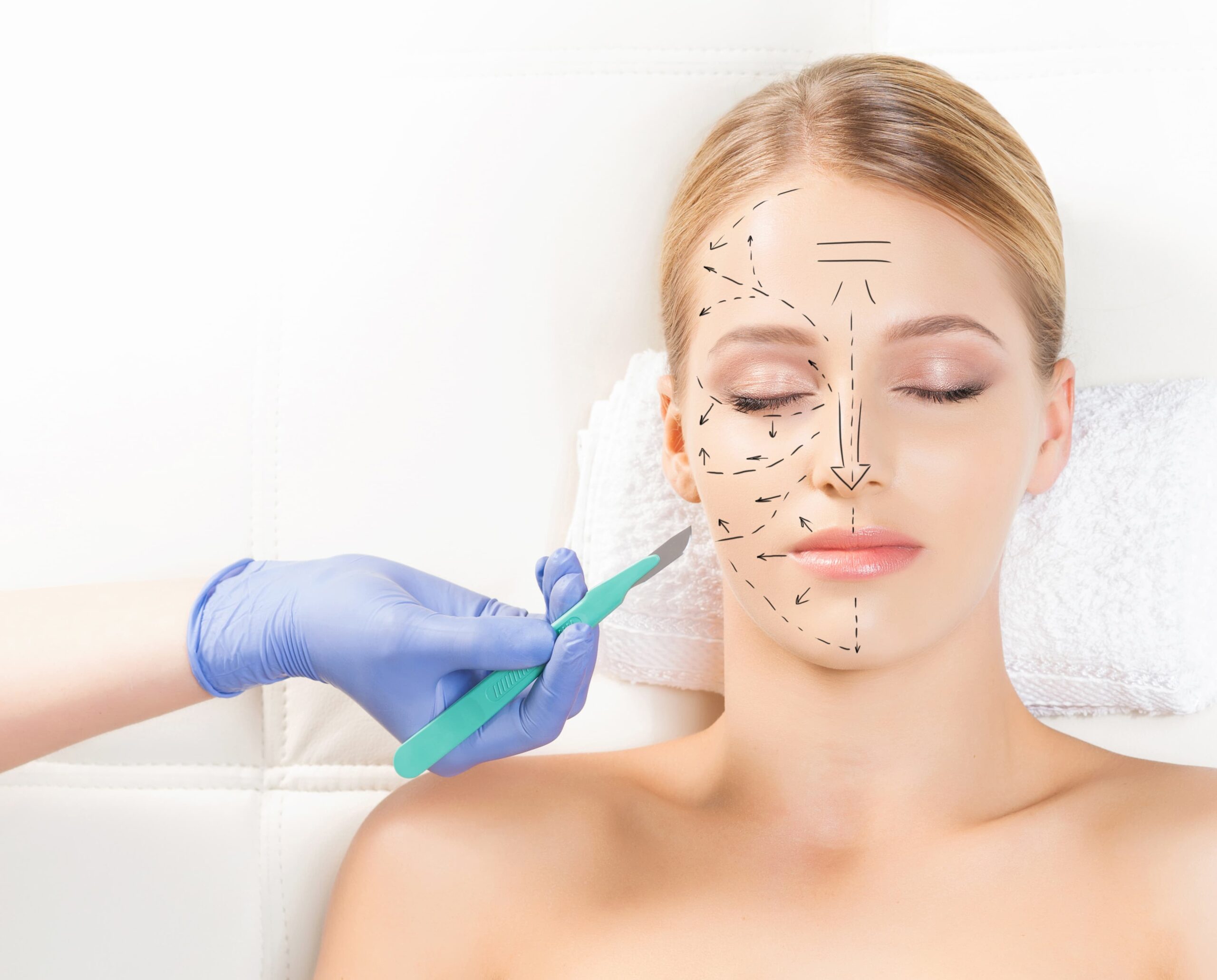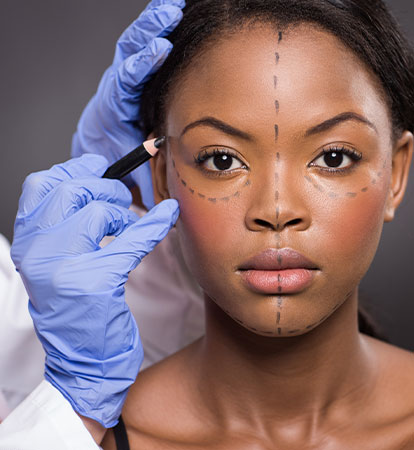Breast Augmentation Rancho Cucamonga: Tailored Solutions for Fuller, Natural-Looking
Breast Augmentation Rancho Cucamonga: Tailored Solutions for Fuller, Natural-Looking
Blog Article
Examining the Mental and Social Variables That Drive People to Think About Plastic Surgery as a way of Improvement
The decision to seek cosmetic surgery often prolongs past plain aesthetics, intertwining with social and mental characteristics that merit complete exam. Elements such as self-confidence, prevalent societal appeal requirements, and the pervasive influence of social media converge to form individual motivations for surgical enhancement. As these influences come to be significantly noticeable, understanding the underlying emotional and social contexts is necessary. What remains to be explored is the extensive influence these variables have not just on individuality however additionally on broader social norms and worths bordering charm and acceptance.
The Role of Self-confidence
Self-confidence dramatically affects an individual's decision to seek cosmetic surgery. People with reduced self-worth usually regard themselves in an adverse light, bring about feelings of inadequacy concerning their physical appearance. This unfavorable self-perception can drive them to look for surgical treatments as an approach of enhancing their self-image. The need for improvement in one's look is regularly linked to a belief that such changes will raise their total self-worth and confidence.

Ultimately, the role of self-esteem in the decision-making procedure relating to cosmetic surgical procedure highlights the intricate interplay in between body picture, individual complete satisfaction, and psychological wellness. Comprehending this partnership is important for medical care specialists to make sure that people are making educated choices rooted in sensible expectations and emotional well-being.
Social Beauty Specifications
Influenced by prevalent media representations and cultural narratives, societal elegance standards play a crucial function fit individuals' understandings of their own bodies. These standards are typically defined by an idealized form of charm that emphasizes qualities such as youthful vigor, balance, and slimness. As these ideals are perpetuated with different networks, consisting of tv, film, and advertising, people frequently internalize these messages, resulting in frustration with their natural look.
The effects of these social norms extend beyond visual choices; they can influence self-confidence, psychological health, and interpersonal partnerships. Individuals that regard themselves as disappointing these standards might experience sensations of insufficiency, triggering a wish for plastic surgery as a way of achieving social approval. This search is commonly fueled by the idea that satisfying these ideals will certainly enhance not just physical appearance yet likewise social standing and individual fulfillment.

Influence of Social Media Site
The impact of social beauty requirements is more magnified by the surge of social media sites platforms, where curated photos and idealized representations of beauty are common. Customers are frequently exposed to review filteringed system and edited photos, which typically depict unattainable physical characteristics. This direct exposure grows a culture of contrast, leading people to assess their own look against these typically impractical standards.
Social network influencers and celebs regularly promote cosmetic treatments, stabilizing the idea that medical improvements are a viable ways for accomplishing societal suitables (plastic surgery rancho cucamonga). The presence of these enhancements can produce an assumption that undertaking cosmetic surgical procedure is a typical method, therefore influencing individuals to take into consideration comparable interventions as a path to boosted self-esteem and social approval
Moreover, the interactive nature of social networks permits for immediate feedback with likes and comments, further strengthening the desire to adhere to popular beauty criteria. Such communications can intensify feelings of insufficiency and drive people towards plastic surgery as a method of getting recognition. Eventually, social networks plays a pivotal function in shaping assumptions of elegance, which significantly affects the decision-making processes surrounding plastic surgery.

Social Viewpoints on Look
Across various cultures, perceptions of look are deeply rooted in historic, social, and financial contexts, forming individuals' views on appeal and worth. In several cultures, appearance serves as a substantial pen of identification, influencing social status, expert chances, and personal partnerships. As an example, in some societies, light skin is frequently related to wide range and advantage, while others may idealize darker skin tones as symbols of toughness and authenticity.
Moreover, typical appeal criteria are usually continued through social narratives, media depictions, and household influences, leading to varying perfects throughout different areas (plastic surgery rancho cucamonga). In Western cultures, the focus on youth and physical conditioning often drives people towards cosmetic enhancement, while in particular Eastern cultures, more refined modifications straightened with conventional looks may be favored
Globalization and the proliferation of digital media have actually further made complex these dynamics, creating a hybridization of appeal perfects that transcends geographical limits. As individuals significantly navigate these social narratives, the pressure to satisfy specific appearance standards can result in the desire for plastic surgery, mirroring an intricate interaction of social worths and personal ambitions. Comprehending these social perspectives is essential in attending to the inspirations behind plastic surgery factors to consider.
Mental Effects of Plastic Surgery
Lots of individuals looking for cosmetic surgical procedure report experiencing profound mental impacts that can significantly alter their self-perception and emotional well-being - plastic surgery rancho cucamonga. The desire for physical enhancement typically comes from underlying problems such as low self-worth, body dysmorphic problem, or societal stress regarding elegance requirements. For some, the prompt post-operative stage can lead to a momentary increase in positive self-image and contentment with their look, cultivating a feeling of empowerment
However, these positive feelings might not be sustaining. Research shows that while some individuals experience improved self-esteem, others may encounter increased anxiousness or depression if their assumptions are not satisfied. This inconsistency can emerge from unrealistic suitables continued by More about the author media representation and social stories surrounding beauty.
Additionally, the mental implications of plastic surgery prolong beyond the person. Relationships with friends and family may be stressed as social characteristics shift, resulting in feelings of seclusion or alienation. Eventually, the emotional effects of cosmetic surgical procedure are multifaceted and complex, requiring careful factor to consider by both prospective people and doctor to make certain informed decision-making and sensible expectations.
Conclusion
In final thought, the decision to pursue plastic surgery is significantly affected by a mix of self-esteem problems, societal charm criteria, and cultural viewpoints on appearance. The prevalent reach of social media further aggravates these pressures, advertising impractical ideals that people often aim to acquire. Comprehending these social and emotional variables is necessary for addressing the motivations behind cosmetic surgery, highlighting the need for a more nuanced conversation surrounding charm and self-acceptance in contemporary culture.
The choice to pursue cosmetic surgery frequently expands beyond plain aesthetic appeals, intertwining with social and emotional dynamics see page that warrant complete exam. Eventually, social media plays a pivotal role in shaping understandings of beauty, which substantially impacts the decision-making processes bordering cosmetic surgery.
As people increasingly browse these cultural narratives, the pressure to adhere to specific appearance standards can lead to the wish for cosmetic surgical procedure, reflecting a complex interplay of personal ambitions and social worths.In final thought, the decision to pursue cosmetic surgical treatment is considerably affected by a combination of self-esteem concerns, societal elegance requirements, and cultural point of views on appearance. Recognizing these social and emotional factors is essential for resolving the motivations behind cosmetic surgical procedure, highlighting the demand for an extra nuanced conversation surrounding elegance and self-acceptance in contemporary culture.
Report this page